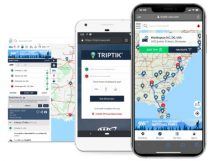 By John Cox/The Bottom Line News By John Cox/The Bottom Line News
Numerous new bills passed during the 2024 legislative session of the Kentucky General Assembly will officially become law and take effect this week, including measures to support workforce and economic development throughout the Commonwealth. Here’s a look at some of the significant legislation new to Kentucky statutes Autonomous Vehicles (HB 7) House Bill 7 sets up a regulatory framework to authorize fully autonomous vehicles on Kentucky roads. At least half of 50 states in the U.S. have passed similar legislation that will address a shortage of commercial drivers, promote safety and efficiency by removing the human element of driving, and keep Kentucky competitive with surrounding states. Testifying before a House committee back in February, Autonomous Vehicle Industry Association CEO Jeff Farrah emphasized that, “AV’s do not speed. They do not text. They do not drive impaired or fatigued. Sadly, human drivers do all of those things, contributing to nearly 43,000 American deaths in 2022, according to federal government statistics.” School Safety (SB 2) Senate Bill 2 will allow Kentucky schools to hire non-law enforcement armed veterans and retired police officers, designated as “guardians,” to ensure the safety of Kentucky students. Senator Max Wise, the bill’s sponsor, said the bill will provide an alternative for school districts that are struggling to find school resource officers. The new law also contains language promoting mental health and suicide awareness in schools. Changes to Statute of Limitations for Employment-Related Claims (HB 320) House Bill 320 shortens the statute of limitations for employment-related claims to bring Kentucky in line with competitor states. Support for Kentucky’s Craft Distillers (SB 50) Senate Bill 50 supports craft distillers by allowing them to distribute up to 5,000 gallons of distilled spirits per year directly to a licensed retailer, which will enable craft distillers to build their brands more rapidly. Child Care Support (HB 6) House Bill 6, the two-year executive branch budget bill, included several key child care provisions in support of workforce participation. It is estimated that the legislature’s decision to continue allowing child care workers to automatically qualify for the Child Care Assistance Program could save Kentucky employers $127 million in anticipated turnover costs if the program had been discontinued. This excludes costs associated with employee absences and reduced consumer spending. Allowing child care workers to automatically qualify for the state’s subsidy program supports child care providers and helps ensure slots are available for children and their families. Tax Updates (HB 8) House Bill 8, which took effect immediately upon its passage with an emergency clause, included several tax updates, including a welcomed new $5 million income tax credit for sales taxes paid by businesses on qualified broadband investments. The bill included no new expansions of the state sales tax base to business purchases or proposals to erode current business sales tax exemptions. Other noteworthy bills that take effect at a later date: Civic Literacy (HB 535) House Bill 535 will broaden the civic literacy curriculum that high schools can offer students. Beginning with the high school freshman class of 2025-2026, either a one-half credit course in civic literacy for graduation, including early graduation, or a score of 70 percent on a 100-question civics test will be required, with local school districts selecting which option to use. Certified Child Care Communities (HB 561) House Bill 561 supports economic development and zoning reforms by encouraging local communities to address barriers to new child care services. The new law requires the Cabinet for Economic Development to submit by December 1, 2024 a draft standardized application for certification and draft instructions for the Certified Child Care Communities Designation Program to the Legislative Research Commission for referral to the Interim Joint Committee on Families and Children. Housing Planning (HB 443) House Bill 443 ensures that local laws relating to subdivision plats and development are in the form of objective standards. The law takes effect July 1, 2025. Data Privacy Protections (HB 15) House Bill 15 creates basic data privacy protections for Kentuckians and imposes new data privacy standards on employers that are more reasonable than other legislation filed in both the 2023 and 2024 legislative sessions. The law does not take effect until Jan. 1, 2026. Safer Kentucky Act (HB 5) House Bill 5 is a sweeping anti-crime bill with tougher penalties for many offenses and an estimated price tag of more than $1 billion over the next decade. Included in the bill is language that makes street camping a class B misdemeanor and a $250 fine on repeat offenses. According to the bill, homeless populations can camp temporarily in designated indoor or outdoor areas, which local governments will need to create. A majority of the law goes into effect July 15, but some provisions will be delayed until Aug. 1, 2025. Paid Family Leave (HB 179) House Bill 179 authorizes insurers to offer paid family leave insurance plans to give Kentuckians more options when it comes to caring for family members. The legislation helps Kentucky employers who would like to offer an additional benefit to their employees by amending state law to allow voluntary paid family leave to be offered as an insurance product. The law went into effect upon the governor’s signing on April 5, 2024. |





